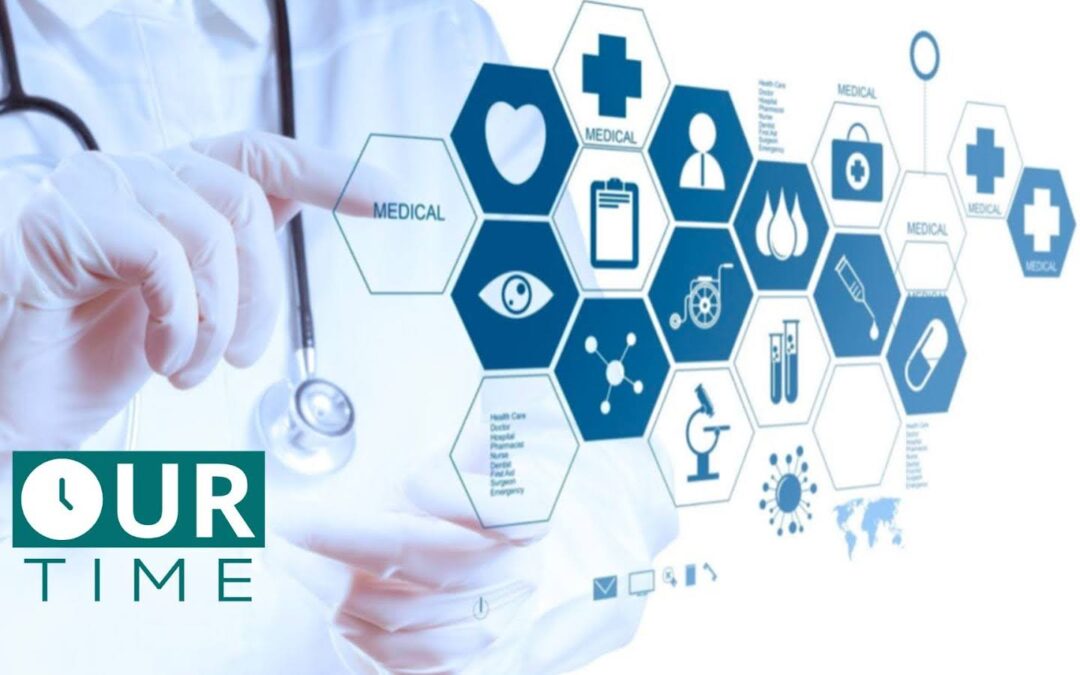In an industry where time is often the most critical factor, automation is revolutionising how healthcare providers deliver care. By leveraging cutting-edge technology, healthcare organisations can enhance operational efficiency, improve patient outcomes, and reduce costs—all while allowing professionals to focus on what matters most: patient care. Whether it’s streamlining administrative tasks or enabling data-driven decision-making, automation is reshaping the healthcare landscape for the better.
What is automation in healthcare?
Automation in healthcare refers to the use of technology, such as artificial intelligence (AI), robotics, and software solutions, to perform repetitive tasks, streamline operations, and improve patient outcomes. From scheduling appointments to managing medication orders, automation reduces human intervention in administrative and clinical workflows, allowing healthcare providers to focus on delivering quality care.
Ready to Transform Your Care Operations?Discover the power of Our Time, the AI-driven platform designed to revolutionise care home management:
Take the first step toward smarter, more efficient operations with Our Time—your partner in transforming care. |
Why is automation in healthcare important?
Automation plays a vital role in addressing the complex challenges of modern healthcare by improving efficiency, enhancing patient care, and reducing operational costs. Here’s why it matters:
Enhances efficiency
- By automating repetitive tasks, such as data entry and scheduling, healthcare organisations can reduce the manual workload for administrative staff. This leads to faster processes, such as patient admissions and discharges, while also minimising errors in record-keeping and documentation.
Improves patient care
- Automation ensures the timely and accurate dispensing of medication, reducing the risk of human error. It also allows clinicians to spend more time interacting with patients, leading to better communication and improved care. Additionally, automation provides faster access to critical patient data, enabling more informed and timely decision-making.
Reduces operational costs
- By eliminating inefficiencies and reducing reliance on manual processes, automation helps healthcare organisations cut unnecessary expenses. It also optimises resource allocation, enabling better management of staff and equipment across multiple locations, ultimately improving financial sustainability.
How Does Automation in Healthcare Work?
Automation in healthcare is crucial for improving efficiency, enhancing patient care, and reducing operational costs. By streamlining administrative tasks, automating clinical processes, and enabling data-driven decision-making, automation allows healthcare providers to deliver faster, more accurate care. It reduces the risk of human error, optimises resource allocation, and frees up time for clinicians to focus on patient interactions, ultimately improving both patient outcomes and the overall healthcare experience.
What are the benefits of automation in healthcare?
Automation in healthcare has the potential to transform the way care is provided, ensuring that healthcare providers, patients, and organisations all reap substantial benefits. From saving time to improving patient experiences and ensuring smoother operations, automation is revolutionising the healthcare industry.

Benefits for providers
Automation in healthcare has the potential to transform the way care is provided, ensuring that healthcare providers, patients, and organisations all reap substantial benefits. From saving time to improving patient experiences and ensuring smoother operations, automation is revolutionising the healthcare industry.
- Time Savings: Automation reduces the time spent on administrative tasks, allowing healthcare professionals to focus more on patient care.
- Error Reduction: Automated systems help minimise human errors in documentation and diagnostics, ensuring accuracy and patient safety.
- Improved Decision-Making: AI-driven insights support better clinical decisions, leading to improved patient outcomes.
Benefits for patients
- Faster Access to Care: Automation streamlines scheduling and patient flow, enabling quicker access to healthcare services.
- Reduced Waiting Times: Efficient appointment scheduling and resource management reduce patient waiting times.
- Enhanced Patient Experience: Personalised care driven by automated systems improves patient satisfaction and engagement.
Organisational benefits
- Improved Compliance: Automation ensures that healthcare organisations stay compliant with regulatory requirements.
- Greater Scalability: Automation supports the expansion of care networks by improving workflow and resource management.
- Real-Time Data Insights: Data analytics provide real-time insights that inform strategic planning and decision-making.
What are the types of automation in healthcare?
Automation in healthcare spans various domains, addressing both clinical and operational needs. These include:
Clinical automation
- Diagnostics: AI-powered tools for faster and more accurate disease identification.
- Surgical automation: Robotic systems assisting in precision surgeries.
- Medication management: Automated dispensers ensuring accurate dosage.
Operational automation
- Scheduling: AI-driven systems to optimise patient and staff scheduling.
- Billing: Automated invoicing and payment processing systems.
- Inventory management: Tools to track and replenish medical supplies in real time.
What are some examples of automation in healthcare?
Automation is already making a significant impact across the healthcare industry, improving both efficiency and the quality of care. Here are some examples:

Administrative tasks
Automation in administrative processes significantly reduces manual effort and enhances efficiency in healthcare settings. Here are some key applications:
- Automated Patient Registration and Check-in Systems: These systems speed up the check-in process, reduce wait times, and eliminate paperwork, ensuring a more seamless patient experience.
- AI Chatbots: Used for answering patient queries, booking appointments, and providing initial consultations, AI chatbots alleviate administrative burdens while offering 24/7 patient support.
- Automated Report Writing: AI-driven tools generate comprehensive and accurate reports from raw data, saving time for healthcare professionals and ensuring consistency across documents.
- Audits and Quality Assurance: Automation streamlines audit processes by continuously monitoring compliance and quality metrics, flagging issues in real-time, and providing actionable insights for improvement.
- Inventory Ordering: Automated inventory management systems track stock levels, predict future needs, and place orders proactively, preventing shortages and overstocking.
- Scheduling and Workforce Management: AI-powered tools optimise staff scheduling, ensuring adequate coverage while considering employee preferences and reducing scheduling conflicts.
- Billing and Claims Processing: Automated systems manage invoicing, insurance claims, and payment tracking, improving accuracy and minimising delays in revenue cycles.
Clinical workflows
- Electronic Prescribing: Automated prescribing systems reduce errors in medication orders, ensure timely delivery of prescriptions, and improve patient safety by cross-checking drug interactions and dosages.
- Remote Monitoring: Wearable devices that monitor patients’ vital signs (such as heart rate, blood pressure, and glucose levels) transmit real-time health data to clinicians, enabling proactive interventions and better management of chronic conditions.
- Automated Diagnostics: AI-driven diagnostic tools assist in identifying diseases or conditions from medical imaging or lab results, improving accuracy, speeding up diagnosis, and reducing human error.
What is the best way to enhance operational efficiency in care management?
To enhance care management efficiency through automation, consider these strategies:
Unified Data Integration
- Centralising systems such as HR, payroll, and compliance enables seamless access to critical information. Integrated data reduces duplication, streamlines processes, and provides a comprehensive view of operations.
Predictive Insights
- Leverage AI to forecast staffing needs, detect turnover risks, and optimise resource allocation. By addressing these challenges proactively, organisations can significantly reduce operational costs and improve workforce stability.
User-Friendly Tools
- Adopt intuitive dashboards and natural language interfaces to make technology accessible to all team members. Simplifying tools ensures that staff at every level can benefit from automation without requiring advanced technical expertise.
Data Security
- Protect sensitive patient and organisational data by securely storing it on UK-based servers. Implement robust encryption, regular system updates, and GDPR-compliant practices to ensure data privacy and reliability.
Ongoing Training
- Equip staff with the knowledge and confidence to maximise automation tools. Provide initial training and ongoing support to ensure long-term success and adaptability to new features or systems.
Notable Use Cases of Automation in Healthcare
Automation is revolutionising healthcare by enhancing operational efficiency, improving patient care, and reducing administrative burdens. By harnessing advanced technologies, healthcare organisations can streamline processes, optimise resources, and offer more personalised care. Here are seven notable use cases of automation in healthcare:
Workforce Optimisation
AI-powered scheduling systems ensure proper staff coverage, and automated payroll processing reduces administrative burdens.
Supply Chain Management
Automation helps track inventory, manage stock levels, and reorder supplies in real time, reducing waste and ensuring essential resources are always available.
Emergency Response
AI tools triage patients based on urgency and send automated alerts to notify staff of critical patient condition changes.
Chronic Disease Management
Remote monitoring devices track vital signs for patients with conditions like diabetes, while AI-driven analytics help create personalised treatment plans.
Enhanced Patient Communication
Chatbots provide 24/7 support for patient queries, and automated reminders help with appointments, medications, and follow-ups.
Medical Imaging
AI-powered systems analyse medical images (like X-rays and MRIs) to assist in diagnosing conditions more quickly and accurately.
Medication Management
Automated medication dispensing systems ensure accurate dosages and prevent errors, improving patient safety and reducing manual labour.
These use cases illustrate how automation is enhancing healthcare operations, improving care delivery, and driving better patient outcomes across various areas of the industry.
Summary
Automation in healthcare is more than a technological advancement—it’s a transformative force reshaping how care is delivered and managed. By streamlining processes, improving decision-making, and enhancing care quality, automation empowers healthcare leaders to focus on meaningful, person-centred care.
At Our Time, we’re at the forefront of this change. Our AI-driven platform integrates seamlessly with your existing systems to turn fragmented data into actionable insights. By forecasting staffing needs, detecting turnover risks, and optimising resources, we help care homes cut agency spend by up to 20% while enhancing the quality of care. Together, let’s redefine what’s possible in healthcare management. Contact us to learn how Our Time can revolutionise your operations.
Elevate Your Care Management Today
Looking to optimise your operations and deliver exceptional care? Reach out to us at hello@ourtimehq.com or book a discovery call today.
